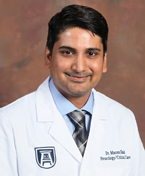Neurology Fellowship Programs
Clinical NeurophysiologyMovement DisordersVascular NeurologyAdult NeuropsychologyNeuroendovascular
Clinical Neurophysiology Fellowship
Fellowship Overview
Thank you for interest in the Clinical Neurophysiology program at the Medical College of Georgia at Augusta University.
Our long established program, initiated in 1980, provides the comprehensive Clinical Neurophysiology training needed to successfully complete the American Board of Psychiatry and Neurology Certification of 'Added Qualifications' in Clinical Neurophysiology. This is an ACGME accredited program.
Topics of Interest
As a fellow, you will acquire a broad range of interpretative skills, learning to:
-
Interpret routine EEG (electroencephalogram)
-
Administer prolonged scalp and intracranial EEG-video recording
-
Ambulatory EEG
-
Evoked potentials
-
Electrocorticography
-
EMG-nerve conduction studies
-
Single fiber EMG
-
Movement disorder monitoring
- Botulinum toxin injection
- Nerve ultrasound
Subspecialties
We offer a rich training experience with didactic instruction and clinical teaching in our Neuromuscular Clinics and Inpatient Epilepsy Monitoring Unit.
Requirements
Contact
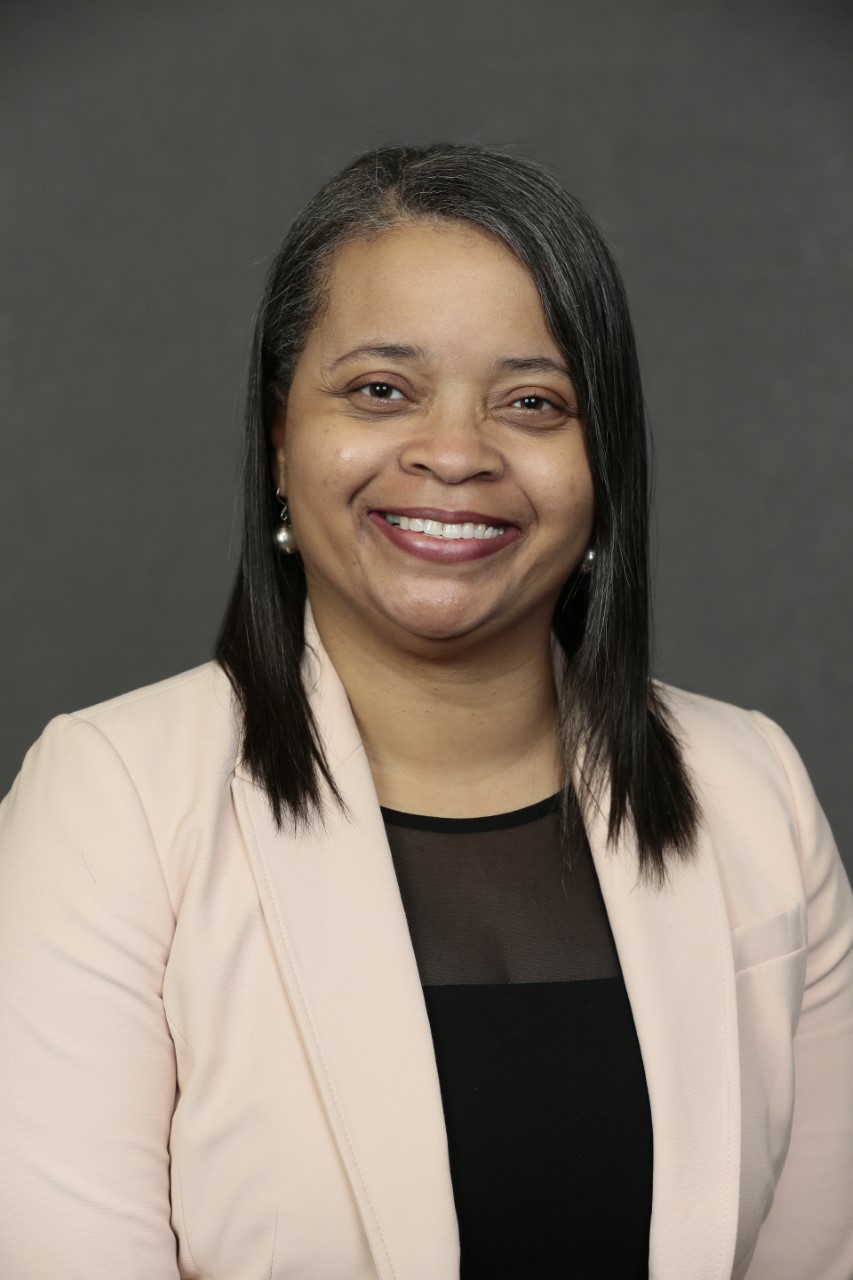
Debra Moore-hill, MD, MPH
- Fellowship Director
- Associate Professor
- Chief, Division of Epilepsy
- Vice Chair, Education
Movement Disorders
Fellowship Overview
Our Movement Disorders fellowship is one or two years in length. Our long established Fellowship program, initiated in 1990s, provides comprehensive Clinical Movement Disorders subspecialty training. (There is no ACGME accreditation for a movement disorders subspecialty at this time.)
Applications accepted via SF Match (https://www.sfmatch.org/) Movement Disorders.
Interviews in spring/summer in calendar year prior to start. Rank list deadline for SF Match is (typically) in September. Movement Disorders Fellowship begins here in July of the following calendar year.
Topics of Interest
As a fellow, you will acquire a broad range of interpretative skills, learning to:
- Application of clinical genetics and basic genetic counseling.
- Deep Brain Stimulation (DBS) clinical evaluations, participation in monthly DBS interdisciplinary case conferences.
- DBS stereotactic surgical planning.
- Movement Neurologist led DBS intraoperative electrophysiology.
- Botulinum toxin application for movement disorders, additional applications, procedural competence.
- Additional advanced Parkinson’s disease therapies (e.g. intestinal gel infusion programming).
- Exposure to ongoing movement disorders clinical trials for hands on exposures to the next wave of therapies and research.
Subspecialties
Clinical and research training by three attending Movement Disorder specialists at the Medical College of Georgia.
- A wide catchment of Parkinson’s Disease evaluations via our Parkinson’s Center of Excellence. MCG was the first Parkinson’s Foundation Center of Excellence in Georgia or South Carolina.
- Atypical Parkinsonism syndromes
- Disabling Essential Tremor
- Dystonia syndromes
- Huntington’s Disease
- Ataxia syndromes
- Heterogeneous additional movement disorders
Requirements
- Will have completed Neurology Residency program in good standing prior to start date.
- Clinical letters of recommendations from an accredited Neurology Residency program.
- Augusta University requires a J-1 Visa.
Contact
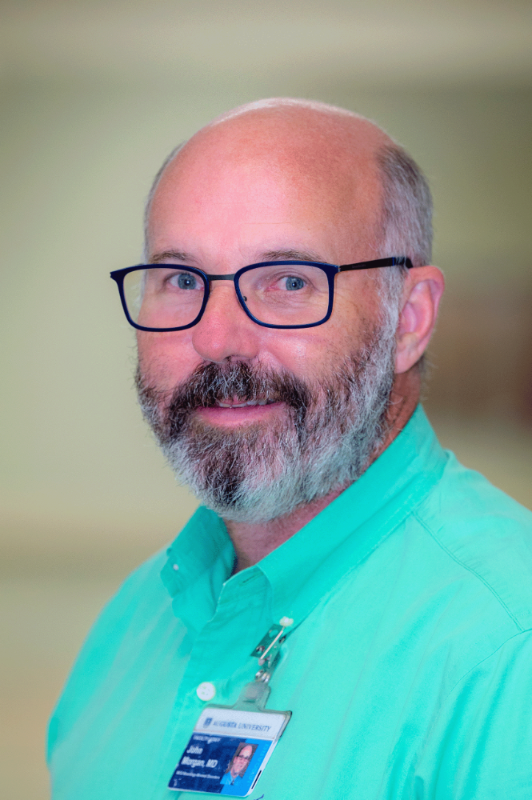
- Director, Movement Disorders Program
- Movement Disorders Specialist
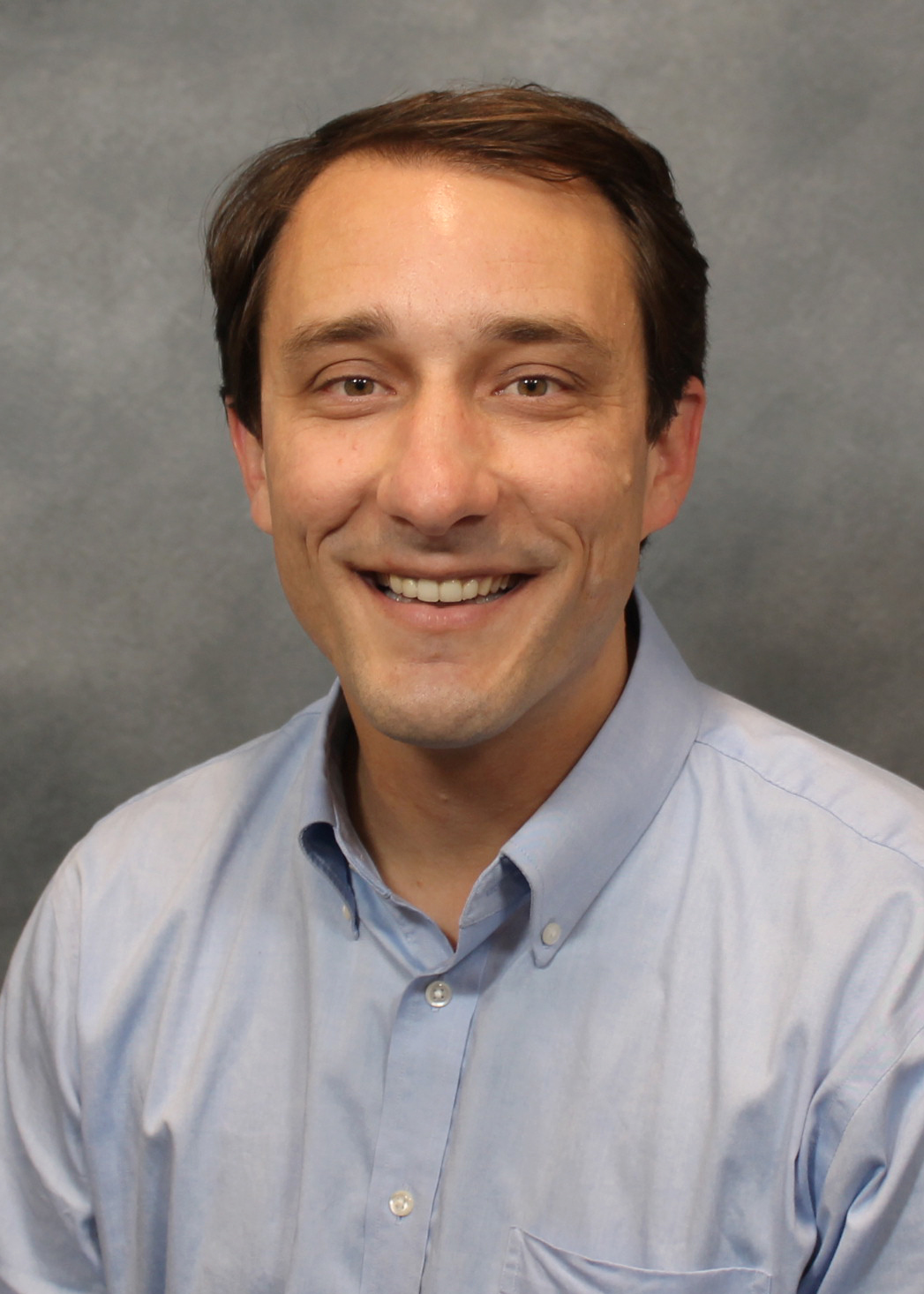
- Director, Movement Disorders Fellowship Program
- Movement Disorders Specialist
Vascular Neurology Fellowship
Fellowship Overview
The fellows work one-on-one with 4 ABPN certified vascular neurologists. During their rotations on the clinical wards, they round with the stroke team, consisting of the attending faculty, neurology residents, nurses, a pharmacist, and rehabilitation therapists. During the course of the year, fellows attend weekly didactic sessions covering a wide variety of stroke topics, including anatomy and physiology, pathology, clinical presentations, evaluation, and management.
- The MCG Vascular Neurology Fellowship at Augusta University is a 1 or 2 year training
program with the intention of preparing graduates for a clinical and/or academic career.
Topics of Interest
As a fellow, you will acquire a broad range of interpretative skills, learning to:
Fellows will actively participate in:
-
Clinical research (and if interested, may participate in basic science research),
-
Helping to identify, enroll, & manage patients in clinical trials;
-
Discussions of trial design, statistical analysis, & management.
-
Clinical management of patients with stroke.
-
Acute evaluation & management of patients with stroke.
-
Be able to discuss evidence based data on acute & long term therapy for stroke.
-
See patients in the outpatient stroke clinic under the direct supervision of the stroke faculty.
-
Inpatient assessment & management of non-acute stroke patients.
-
Discussions and presentations on the clinical features, pathophysiology, neuroradiological evaluations, & management of different stroke syndromes.
Subspecialties
Neurosonology Lab
The fellow spends 2 months learning to perform and interpret carotid duplex (CDUS) and transcranial Doppler (TCD) ultrasound. Approximately 140 CDUS and TCD studies are performed each month at MCG, and 140 CDUS are performed at the VA, for evaluation of cerebral ischemia, subarachnoid hemorrhage-related vasospasm and brain death. At the completion of the fellowship, the fellow will have the opportunity to sit for the American Society of Neuroimaging Neurosonology Board Exam.
Inpatient
The vascular neurology fellow rotates on the neurology inpatient service for at least 6 months under the direction of the stroke attending. Responsibilities include daily rounding on all stroke patients and teaching neurology residents and medical students. The fellow sees all new stroke admissions and supervises their acute treatment and diagnostic evaluation. The fellow reviews all of these cases with the stroke attending.
Requirements
Applicants must be eligible for a Georgia medical license at the start date of the fellowship. Fellows must have successfully completed a 3 year Neurology residency in a USHME approved residency training program prior to starting the fellowship.
Applications and supporting materials are only accepted through the Electronic Residency Application Service (ERAS). Augusta University is an equal opportunity affirmative action employer. Minority and women candidates are encouraged to apply.
Foreign Medical Graduates should have clinical experience in the United States (i.e. observerships, clinical rotations, ect.) in the past five years and should not be more than five years from graduating medical school.
-
CV
-
At least 3 letters of recommendation
-
Dean's Letter
-
Transcript
-
USMLE score reports (three digit scores>=200)
-
Personal Statement
-
Augusta University requires a J-1 Visa
Research
Clinical Research
- Fellows participate in ongoing clinical research trials. There are usually both acute stroke intervention trials as well as secondary stroke prevention trials. As part of the participation fellows are involved in trial design, statistical analysis, and trial management.
Outpatient Responsibilities
The fellow attends 1 - 2 day clinics per week, under the supervision of stroke faculty members.
Basic Research
- For fellows interested in basic science research, MCG at Augusta University has a diverse and active basic research program in cerebrovascular disease. This includes research programs in neuroprotection, stem cell therapy, hyperglycemia and stroke, hypertension and stroke. Dr Hess, the Chairman of Neurology, is actively involved in basic research as well as clinical research. Fellows may become involved in basic science research, but basic research interest is not required for fellows.
Teaching
Teaching Responsibilities
-
- In addition to clinical training, the fellow is responsible for a monthly stroke conference and a stroke journal club. At each stroke conference, the fellow presents a topic chosen by the fellow (typically the topic will be related to a specific case seen on the wards that month). Attendees of the conference are the stroke faculty, other neurology faculty, the neurology residents and medical students. Stroke journal club is held once a month at a stroke faculty member's home. The fellow is responsible for selecting and analyzing an article relevant to their interest.
Contact
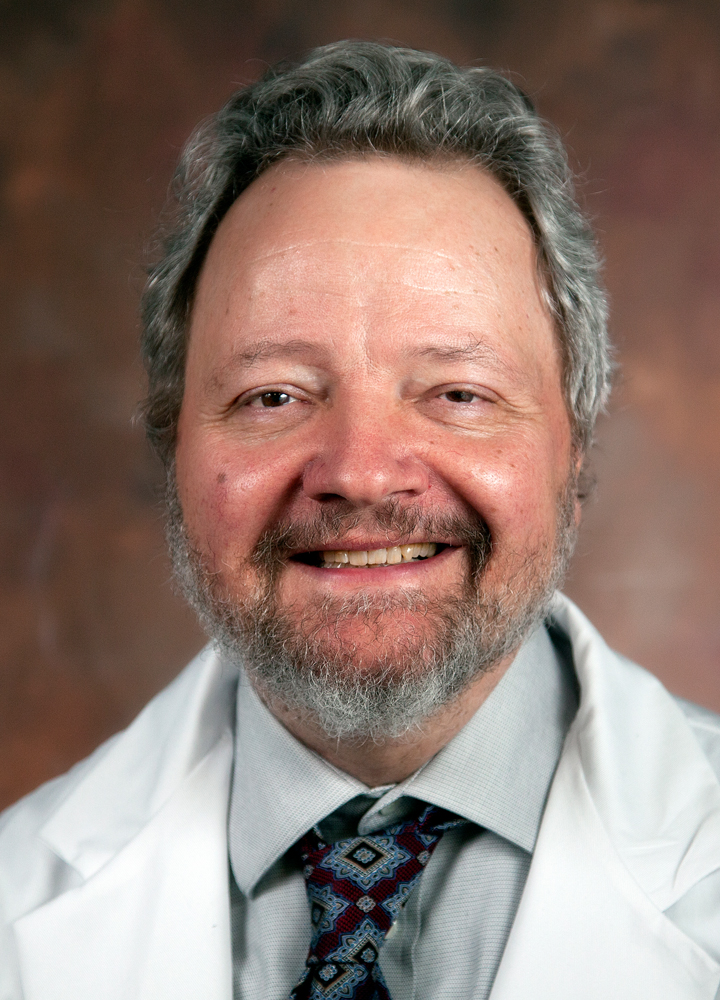
Adult Neuropsychology
We do not recruit every year. We typically recruit for one position every two years. Availability of a position for the upcoming training cycle will be updated each fall on our APPCN program page and on this page.
Fellowship Overview
The Medical College of Georgia Department of Neurology at Augusta University currently offers a two-year postdoctoral training program in adult clinical neuropsychology.
The program is a member of the Association of Postdoctoral Programs in Clinical Neuropsychology (APPCN) and is designed to be consistent with Houston Conference Guidelines on Specialty Education & Training in Clinical Neuropsychology. The Medical College of Georgia at Augusta University is the medical university for the state of Georgia’s university system. Its primary academic and clinical campus facilities are located in Augusta, Georgia.
The program’s mission is to provide the necessary education and training required to produce an advanced level of competence in neuropsychology so that residents may enter the specialized practice of clinical neuropsychology at the independent practitioner level. The program will enable the resident to acquire advanced skills in neuropsychological assessment, treatment, and consultation as well as an advanced understanding of brain-behavior relationship.
The Medical College of Georgia’s postdoctoral training program in neuropsychology is a participant in the matching program.
Topics of Interest
- The program is housed in the Neurology Department; as such, neuropsychological evaluations will routinely be performed for adult outpatients referred primarily from our neurological and neurosurgical services, but also from general medical and psychiatry services
- Residents will be exposed to patients with neurodegenerative conditions/dementing illnesses, cerebrovascular disorders, movement disorders, epilepsy, traumatic brain injuries and head injuries, brain neoplasms, psychiatric disturbances, developmental disorders, chemotherapy/radiation treatment effects, infectious diseases, multiple sclerosis, and other medical conditions
- There are additional opportunities for clinical involvement with patients within our Comprehensive Epilepsy Surgery Program (a Level 4 Epilepsy Center) and the Neuromodulation Clinic within our Movement Disorders program (a Parkinson’s Foundation Center of Excellence)
- Please see the current Training Program Brochure for further description of program components
Subspecialties
Neuropsychological evaluations will routinely be performed on adult outpatients from the neurological, surgical, general medical, and psychiatry services. Residents will be exposed to patients with neurodegenerative conditions/dementing illnesses, cerebrovascular disorders, movement disorders, epilepsy, traumatic brain injuries and head injuries, brain neoplasms, psychiatric disturbances, developmental disorders, chemotherapy/radiation treatment effects, infectious diseases, multiple sclerosis, and other chronic medical conditions. Additional training opportunities (as available) usually include pre- and postsurgical neuropsychological evaluation within the Epilepsy Surgery Program, involvement in Wada procedures, and pre-surgical evaluation of DBS candidates.
Requirements
- To apply, applicants should submit a cover letter with statement of interest/goals, CV, graduate transcripts, APPCN Verification of Completion of Doctorate (if doctorate has not been completed prior to application), two deidentified sample reports, and three letters of recommendation (including at least two from individuals familiar with the applicant’s neuropsychology training) by December 31 of active recruiting years to Kelly Stanek, PhD, ABPP
- Applicants should have a firm background in neuropsychological assessment and strong writing and communication skills. Applicants must have fully completed their APA or CPA-approved doctoral education (including dissertation) and APA or CPA-approved pre-doctoral internship prior to beginning the residency. Applications will be considered from U.S. citizens and U.S. permanent residents only.
VIEW OUR CURRENT TRAINING PROGRAM BROCHURE HERE
Contact
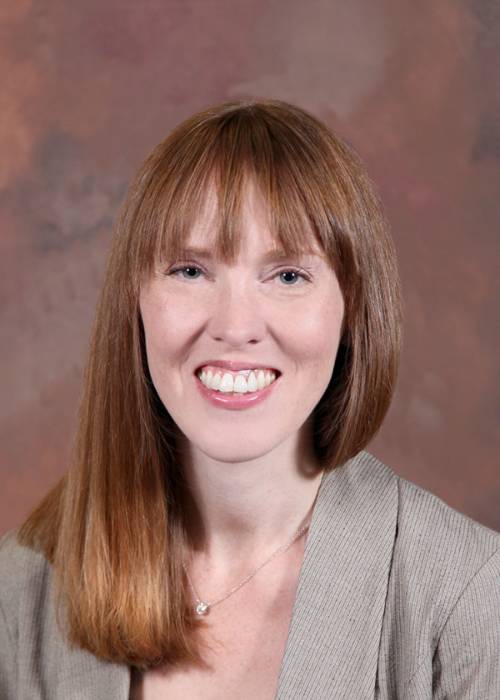
Kelly Stanek, PhD, ABPP
- Director, Adult Neuropsychology Service
- Director, Postdoctoral Training Program in Clinical Neuropsychology
Neuroendovasular Fellowship
To apply for 2028-2030 please send cv and 2 letters of recommendation.
Fellowship Overview
The Neuroendovascular Fellowship at the Medical College of Georgia is a CAST certified fellowship program dedicated to training individuals who wish to pursue a career in interventional treatment of cerebrovascular disease.
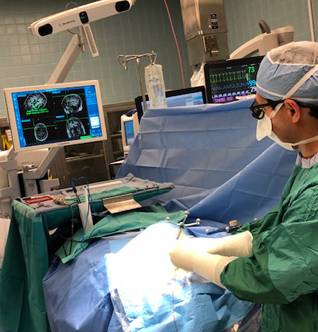
Topics of Interest
- SOFAST: Multicenter Trial of Sofia Aspiration System as First Line Technique
- Middle Meningeal Artery Embolization for Subdural Hematoma Following Surgical Evacuation
- Fast EVD Wean following Aneurysmal Subarachnoid Hemorrhage
- PISCES III Stroke Trial: A Randomized, Placebo Controlled Study of the Efficacy and Safety of Intracerebral Stem Cell (CTX0E03) in Subjects with Disability Following an Ischemic Stroke. - Closed
- Minimally Invasive Evacuation of Intraparenchymal Hematomas with Use of Vycor Retractor
- Precise: Posterior Fossa Perfusion Imaging in Basilar Occlusion and Thrombectomy
Arpeggio: Neuroprotection in Stroke Thrombectomy with an IGF-1 Analog - Rapid Research Collaboration Terarecon Research Collaboration
Subspecialties
Our program provides a unique fellowship experience through a comprehensive multidisciplinary approach including instruction in neuroendovascular surgery, skull base surgery, vascular neurology, and neurocritical care. The Medical College of Georgia has been a national leader in stroke management over the past two decades. We were the first institution in the state of Georgia and second in the entire southeast to obtain the designation of a comprehensive stroke center. As the largest and only public medical school in Georgia, our comprehensive stroke center serves thousands of stroke patients per year. We provide state of the art care with extensive research in areas of stem cell and medical therapy as well as access to novel medical device used for treatment of stroke.
Requirements
- Neurosurgery and neurology residents are both eligible to apply for this two-three year fellowship with Dr. Rahimi in Neurosurgery.
Contact
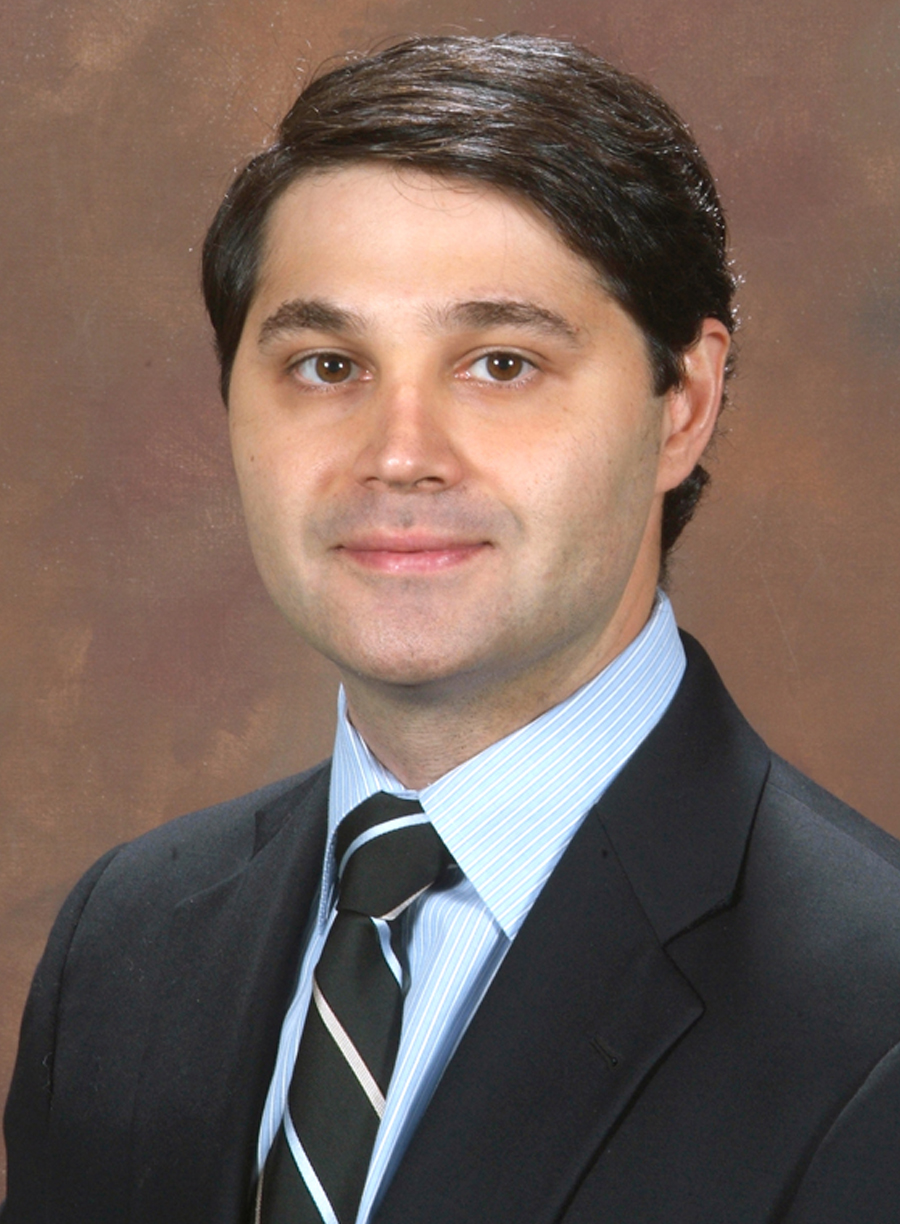
Scott Y. Rahimi, MD
- Director Cerebrovascular & Endovascular Services
- Co-Dir., Comprehensive Stroke Center
- Director, Neuroendovascular Fellowship
Neuro ICU Fellowship
The Medical College of Georgia Neurocritical Care APP Fellowship begins on October 1st of each year. Applications will be posted in April of each year.
Fellowship Overview
To meet the ongoing demand for advanced practice providers (APPs) in the field of Neurocritical Care, we are offering a Neurocritical Care APP Fellowship Training at Augusta University, Medical College of Georgia which is both a comprehensive stroke center and Level 1 Trauma Hospital.
Our program is a 12-month post-graduate fellowship training for nurse practitioners or physician assistants. The program’s goal is to provide specialty training to motivated advanced practice providers interested in pursuing a career in neurocritical care. The fellowship’s curriculum includes both didactic and clinical experiences, under the guidance of experienced MD and APP faculty. Our curriculum has been reviewed and adapted to ensure that it combines the basic aspects of general critical-care medicine that are relevant to neuro-critical care, as well as specialized skills that are specific to neuro-critical care. It contains a listing of cognitive and procedural skills that are fundamental to the training of specialists in neurological-critical care, and it is based on national recommendations.
Topics of Interest
- Neurological Disease States
- Cerebrovascular Diseases
- Neurotrauma
- Disorders, Diseases, Seizures, and Epilepsy
- Neuro-oncology
- Encephalopathies
- Clinical syndromes
- . Perioperative Neurosurgical Care
- Pharmacotherapeutics
Subspecialties
Fellows will rotate primarily on the Neuro-ICU, but they will have the opportunity for other ICU rotations (MICU, STICU, etc) and elective service rotations (Nephrology, Cardiology, ID, etc.) designed to enhance their overall education. These rotations provide a foundation of basic critical care management as well as exposure to many aspects of subspecialty care.
On the Neuro-ICU service, fellows will gain experience managing patients with neurological and neurosurgical conditions including acute ischemic stroke, subarachnoid hemorrhage, status epilepticus, traumatic brain injury, etc.
Requirements
Our ideal candidate is a nurse practitioner (NP) or physician assistant (PA) who has recently finished APP school and has high interest in pursuing a career as a APP intensivist with advanced knowledge in complex neurological conditions (e.g., ICH, SAH, etc.)
We seek a candidate with a good foundation in critical care. Your work experience, clinical rotations, or community projects should demonstrate your desire / commitment to care for this vulnerable patient population.
Your application will be evaluated purely based on the merits using CV, LOR, PS, etc.
Neuro-Critical Care Core Curriculum
Contact
